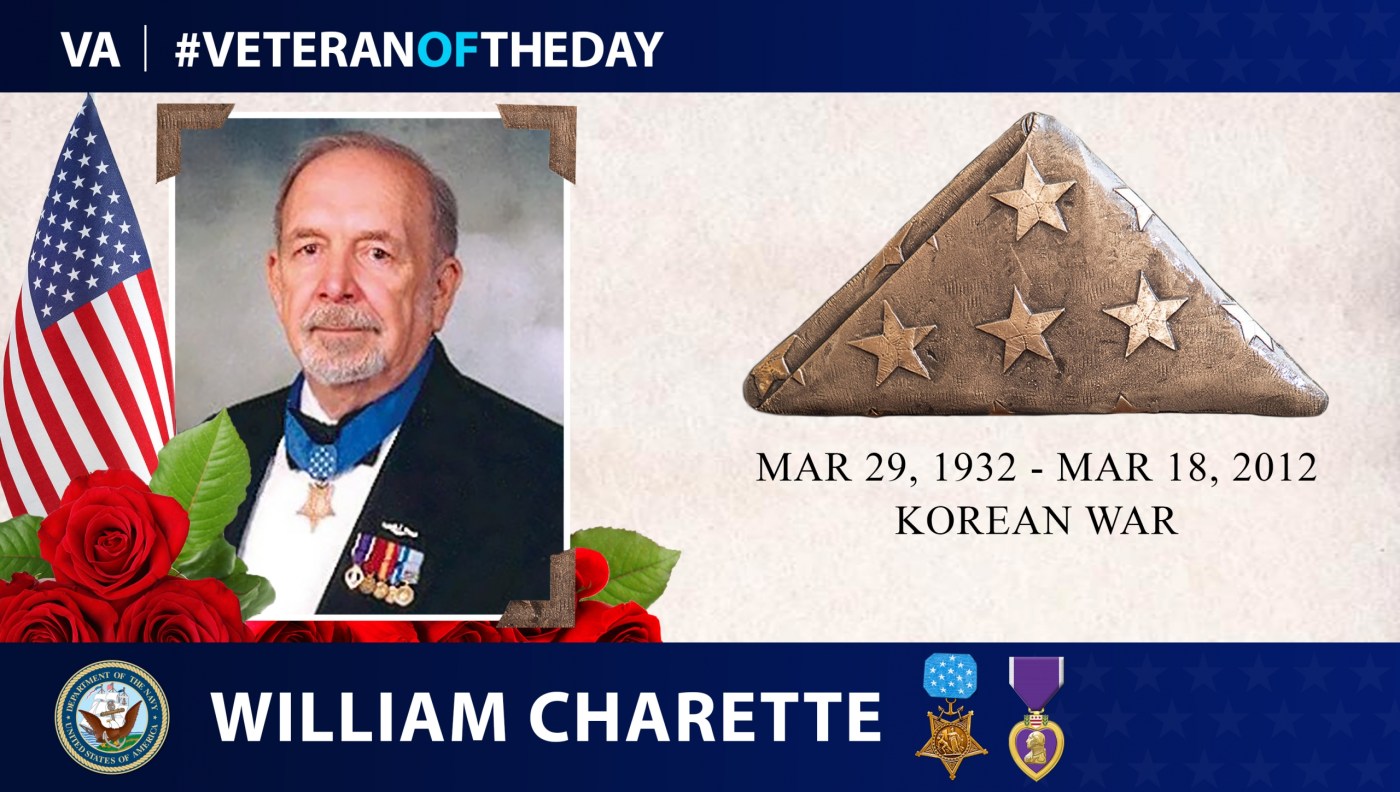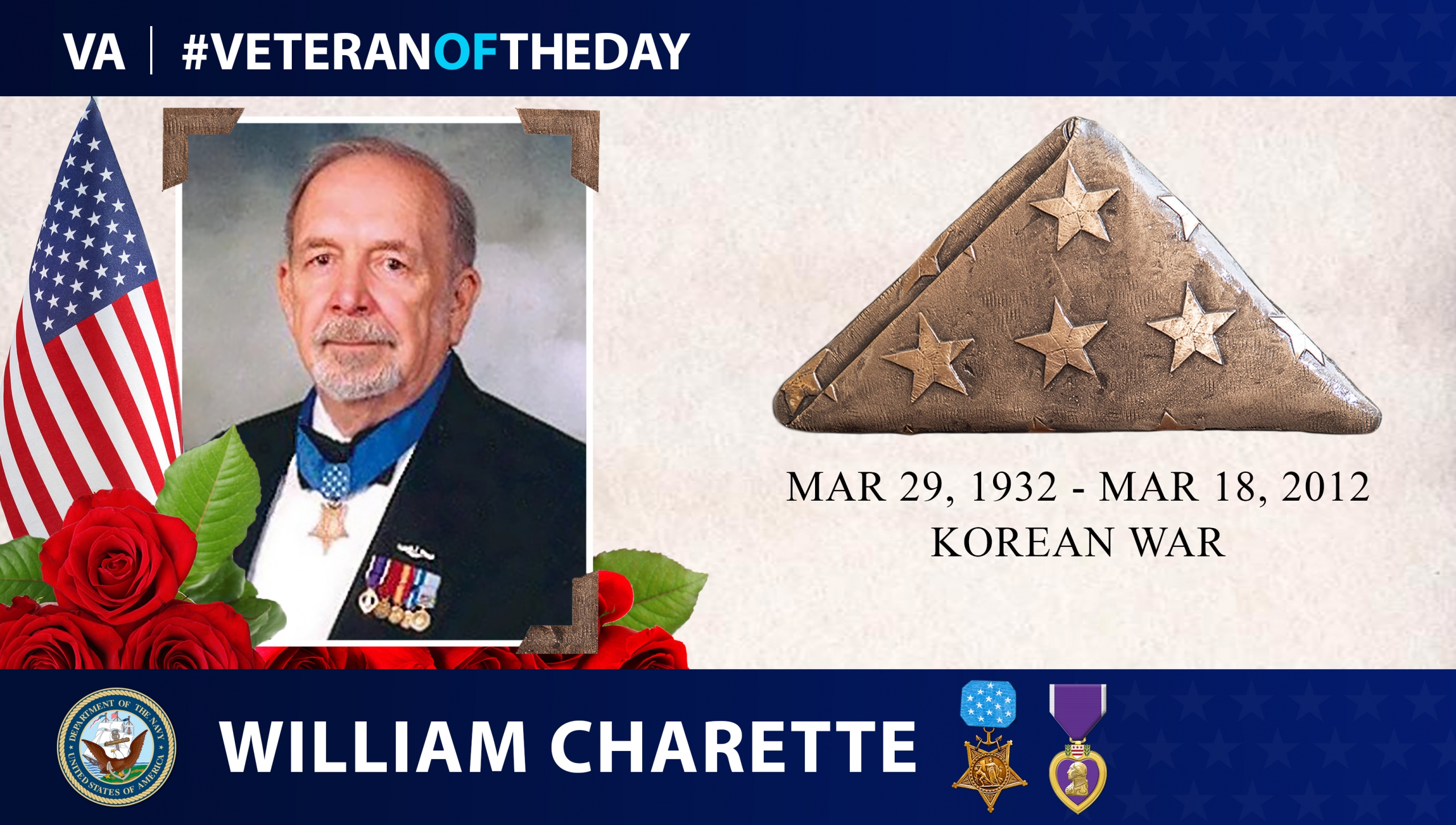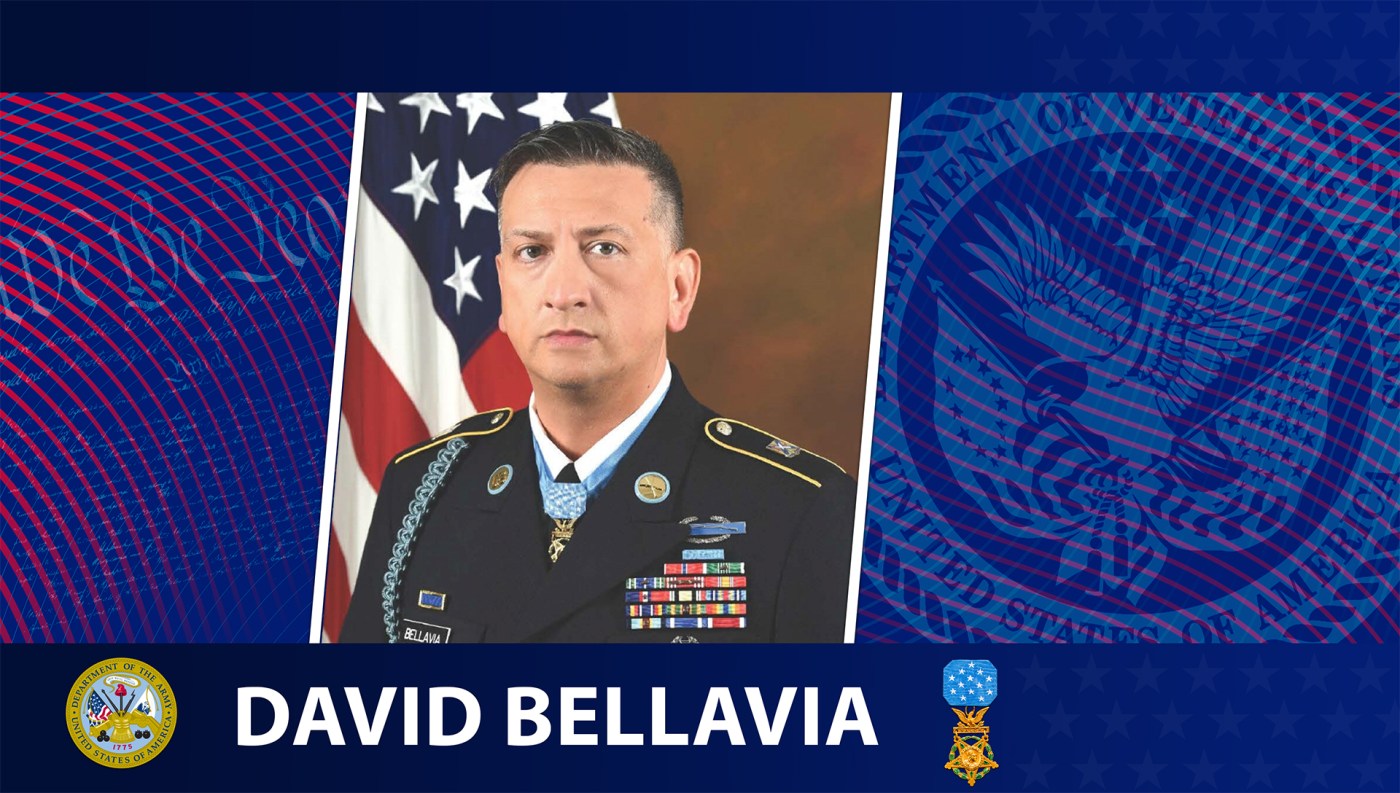William Richard Charette was born in Ludington, Michigan, in March 1932. After graduating from high school, he worked aboard a ferry on Lake Michigan. Working on the water led him to consider a career at sea, and he joined the Navy in 1951, during the Korean War, shortly before his 19th birthday. Due to a shortage of qualified medics, he was selected for duty as a hospital corpsman.
Charette completed basic training at the Naval Training Station in Great Lakes, Illinois, followed by medical training at the Naval Hospital Corps School in Bainbridge, Maryland. He spent a year serving at the U.S. Naval Hospital in Charleston, South Carolina, before volunteering to be attached to a Marine reserve unit. He was assigned to F Company, 2nd Battalion, 7th Marines, 1st Marine Division and deployed to South Korea in 1953.
On March 27, 1953, while guarding three hilltop outposts near Panmunjom that American forces had nicknamed “Vegas,” “Carson” and “Reno,” Charette’s unit was overrun by Chinese troops who captured Vegas and Reno. The Marines later launched a counterattack to retake Vegas, beginning a battle that would last for the next 24 hours. Charette moved through a barrage of enemy mortar and small-arms fire to assist the members of his company.
While tending to a stricken Marine, Charette saw a grenade land nearby and threw himself on top of his patient to shield him from the explosion. The subsequent blast knocked Charette unconscious, ripped off his helmet and destroyed his medical bag. When he woke up, he was temporarily blinded by the blood flowing into his eyes. Ignoring his injuries, he moved to help the other wounded men, tearing off parts of his clothing to use as improvised bandages. He also stood up in a trench and exposed himself to hostile fire to retrieve a Marine who had suffered a serious leg wound. For his actions, Charette was recommended for a Navy Cross, which was later upgraded to a Medal of Honor.
“When they came and told me they’d moved it up to a Medal of Honor, I immediately went to our captain and said, ‘I don’t want it,’” Charette said. “I didn’t think I earned it.”
Charette received the Medal of Honor from President Dwight D. Eisenhower at a White House ceremony on Jan. 12, 1954. A total of five Navy hospital corpsmen were awarded the Medal of Honor for their actions during the Korean War; Charette was the only one who survived to receive it.
After the war, Charette trained new corpsmen at the Naval Hospital Corps School. In 1958, as the only active-duty Medal of Honor recipient in the Navy, he was given the honor of selecting the casket of an unnamed World War II soldier who would be buried at the Tomb of the Unknown Soldier at Arlington National Cemetery.
In addition to the Medal of Honor, Charette was also a recipient of a Purple Heart, a National Defense Service Medal, a Korean Service Medal and a United Nations Service Medal. He retired from the Navy with the rank of master chief hospital corpsman in 1977, after 26 years of service.
Charette died on March 18, 2012, at the age of 79. He is interred at Florida National Cemetery in Bushnell.
We honor his service.
Nominate a Veteran for #VeteranOfTheDay
Do you want to light up the face of a special Veteran? Have you been wondering how to tell your Veteran they are special to you? VA’s #VeteranOfTheDay social media feature is an opportunity to highlight your Veteran and his/her service.
It’s easy to nominate a Veteran. Visit our blog post about nominating to learn how to create the best submission.
Veterans History Project
This #VeteranOfTheDay profile was created with interviews submitted to the Veterans History Project. The project collects, preserves, and makes accessible the personal accounts of American war Veterans so that future generations may hear directly from Veterans and better understand the realities of war. Find out more at http://www.loc.gov/vets/.
Writer: Stephen Hill
Editors: Nicolas Nunnally, Alexandra Kaiser
Researchers: Kennady Hertz, David Charles Deprez
Graphics: Kiki Kelley
Topics in this story
More Stories
This week’s Honoring Veterans Spotlight honors the service of Army Veteran David Bellavia, who received a Medal of Honor from the Iraq War’s deadliest operation, the Second Battle of Fallujah.
This week’s Honoring Veterans Spotlight honors the service of Army Veteran Scotty Hasting, who served in Afghanistan.
This week’s Honoring Veterans Spotlight honors the service of Army Veteran Roy Sheldon, who served in 97th General Hospital in Frankfurt, Germany.








We honor the service of William Richard Charette
Thank you for what you do, and how you do it‼️ Hand Salute ❗️